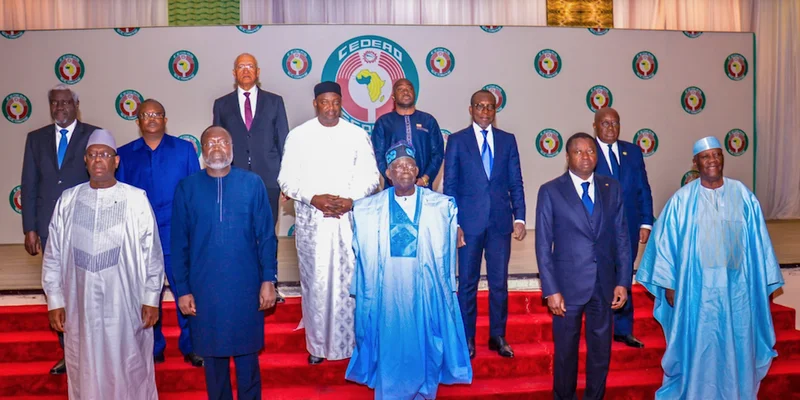The Economic Community of West African States (ECOWAS) convened its 67th summit on Sunday, June 22, 2025, in Abuja, Nigeria.
The summit was to address mounting challenges threatening the region’s stability.
Regional leaders gathered to assess the bloc’s future amid political instability, military coups, and the looming withdrawal of Mali, Niger, and Burkina Faso.
ECOWAS Commission President Omar Alieu Touray will update leaders on negotiations with the three Sahelian nations, which confirmed their exit from the bloc in January 2025 after a wave of coups.
Their departure, despite ECOWAS offering a six-month reconsideration period, could reshape West Africa’s political and economic landscape.
Tinubu’s Tenure: Bold Vision, Mixed Results
Nigerian President Bola Ahmed Tinubu, who assumed the ECOWAS chairmanship in 2023, hosted the summit as his tenure draws to a close.
Tinubu championed a tough stance against coups and pushed for deeper regional integration, but his efforts faced setbacks.
His call for military action against Niger’s junta in 2023 fizzled out, and his broader goals to strengthen the bloc remain unmet.
Posts on social media have criticized his tenure, citing the exit of Mali, Niger, and Burkina Faso as a low point.
In a final diplomatic move, Tinubu hosted a West Africa Economic Summit (WAES) on Saturday, inviting the junta-led nations to discuss regional trade.
Mali, Niger, and Burkina Faso declined, highlighting the growing divide.
Despite this, Tinubu expressed optimism, handing over leadership with a “deep sense of fulfilment” in a post on X.
A New Leader for a Troubled Bloc
The summit named Sierra Leone’s President Julius Maada Bio as Tinubu’s successor for a one-year term, ending speculation about contenders like Senegal’s Bassirou Diomaye Faye and Ghana’s John Dramani Mahama.
The decision aligns with ECOWAS’s tradition of rotating leadership among Anglophone, Francophone, and Lusophone countries.
Bio inherits a bloc at a crossroads. Leaders admitted during the summit that West Africa faces “mounting unrest and political instability,”.
The new chair must navigate strained ties with the breakaway nations, manage their formal exit, and push internal reforms to restore ECOWAS’s credibility.
Challenges Ahead
The withdrawal of Mali, Niger, and Burkina Faso poses economic and security risks, as the Sahel grapples with jihadist insurgencies and governance crises.
ECOWAS’s failure to activate its standby force, despite commitments, drew Tinubu’s ire, signaling deeper operational challenges.
As West Africa seeks stability, the summit underscored the need for unity.
Will Bio’s leadership bridge divides and revitalize ECOWAS, or will the bloc face further fragmentation? The region watches closely.























